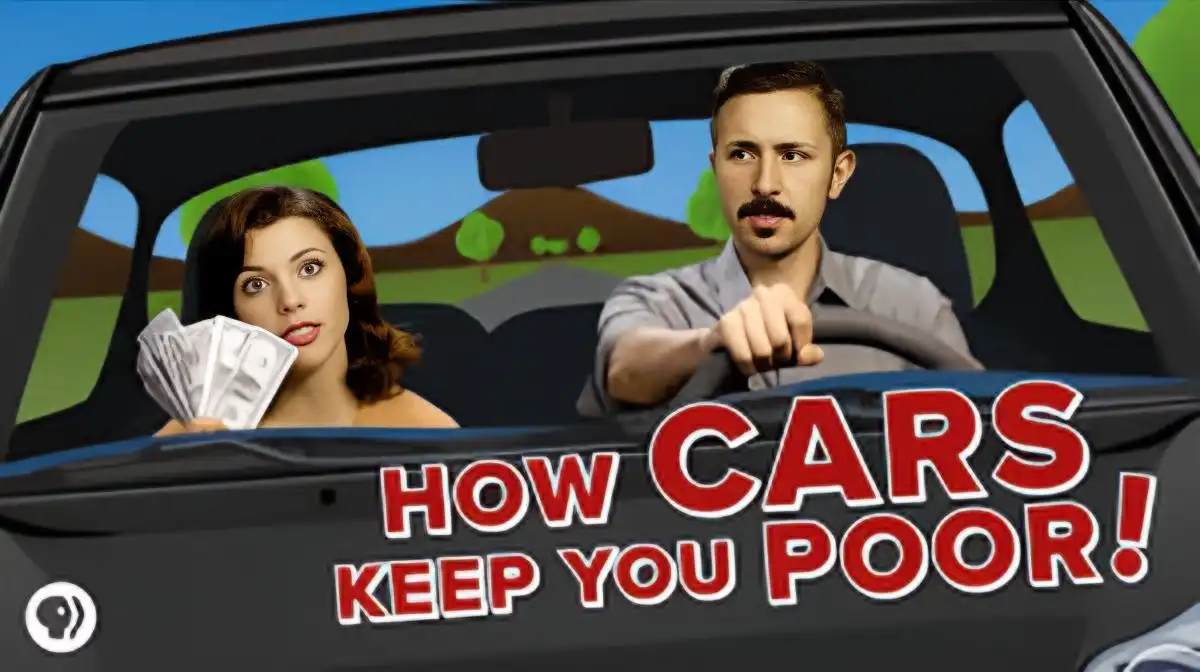How Cars Keep You Poor: The Hidden Costs of Car Ownership
Owning a car is often seen as a symbol of freedom and independence. However, beneath the shiny exterior lies a multitude of hidden costs that demonstrate how cars keep you poor, and can significantly impact your financial well-being. In this article, we’ll explore how car ownership can erode your wealth and offer insights into more sustainable alternatives.
Video Credits To: https://www.youtube.com/watch?v=TtJXl6pk0Z4
🚗 1. The High Price of Ownership
The initial cost of purchasing a car is just the beginning. In the UK, the average total cost of the first year of vehicle ownership for a popular model now stands at approximately £29,526.42. This figure encompasses various expenses, including:
- Depreciation: A new car can lose up to 63% of its value in the first five years.
- Insurance: The average annual premium has risen to £941, with some models costing as much as £2,300.
- Fuel: Depending on usage, fuel costs can range from £1,500 to £2,000 annually.
- Maintenance and Repairs: Routine servicing and unexpected repairs can add hundreds of pounds to your yearly expenses.
These costs can strain your budget and divert funds from savings or investments.
💳 2. Financing: The Debt Trap
Many individuals opt for car finance options like Personal Contract Purchase (PCP) or Hire Purchase (HP). While these schemes offer lower monthly payments, they often come with hidden interest rates and commissions. Between 2007 and 2021, many PCP and HP agreements included hidden commission-based interest rate hikes by car dealers acting as brokers, leading to significant overcharges.
Additionally, the average monthly car payment in the UK is approximately £280, which can be a substantial portion of one’s monthly income.
📉 3. Depreciation: A Silent Wealth Eroder
The moment you drive a new car off the lot, it begins to lose value. Within the first year, a car can depreciate by up to 20%, and over five years, it may lose more than half of its original value. This rapid depreciation means that the money spent on a car doesn’t contribute to long-term wealth accumulation.
🛠️ 4. Maintenance and Repairs: Ongoing Expenses
Regular maintenance is essential to keep a car running smoothly. However, these costs can add up over time. For instance:
- Servicing: Depending on the vehicle’s make and model, an interim service can cost between £75 and £150, while a full service may exceed £400.
- Repairs: Unexpected repairs, such as replacing a clutch or gearbox, can be costly, especially for older vehicles.
These ongoing expenses can strain your finances and reduce your ability to save or invest.
🌿 5. Environmental and Societal Costs
Beyond personal finances, car ownership has broader implications:
- Environmental Impact: Cars contribute significantly to air pollution and carbon emissions, impacting public health and the environment.
- Traffic Congestion: Increased car ownership leads to traffic jams, longer commute times, and reduced quality of life.
- Public Health: Air pollution from vehicles is linked to respiratory diseases and other health issues.
These societal costs are often overlooked but can affect everyone, regardless of car ownership.
🚶 6. Alternatives to Car Ownership
To mitigate the financial burden of car ownership, consider the following alternatives:
- Public Transportation: Buses, trains, and trams offer cost-effective and environmentally friendly travel options.
- Cycling and Walking: For short distances, cycling or walking can be healthier and more economical choices.
- Car Sharing and Rentals: Services like Zipcar or Turo allow access to a vehicle when needed without the full financial commitment.
- Electric Scooters: In some urban areas, electric scooters provide a convenient and affordable mode of transport.
By exploring these alternatives, you can reduce your reliance on personal vehicles and the associated costs.
💡 Conclusion
While owning a car may seem like a necessity, it’s essential to weigh the hidden costs against the benefits. By understanding the financial implications and considering alternative modes of transportation, you can make informed decisions that align with your financial goals and lifestyle.
For a more in-depth discussion on this topic, you might find the following video insightful:













